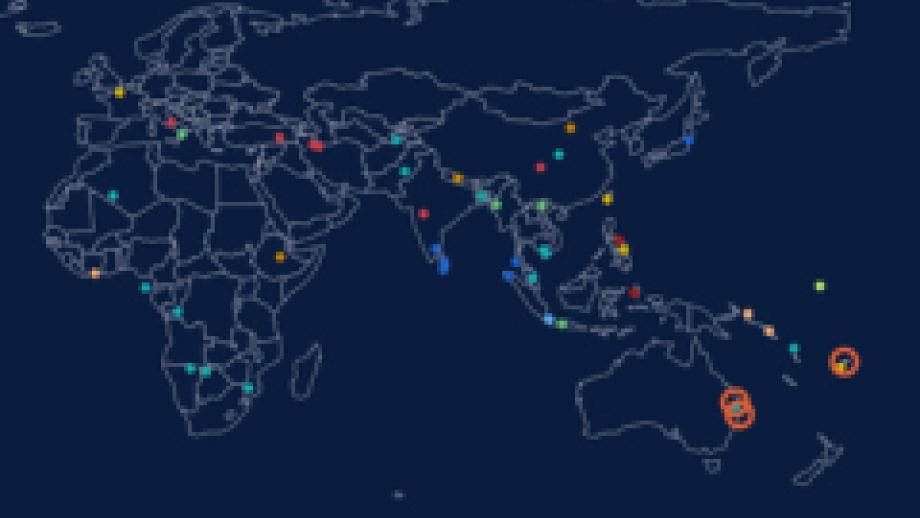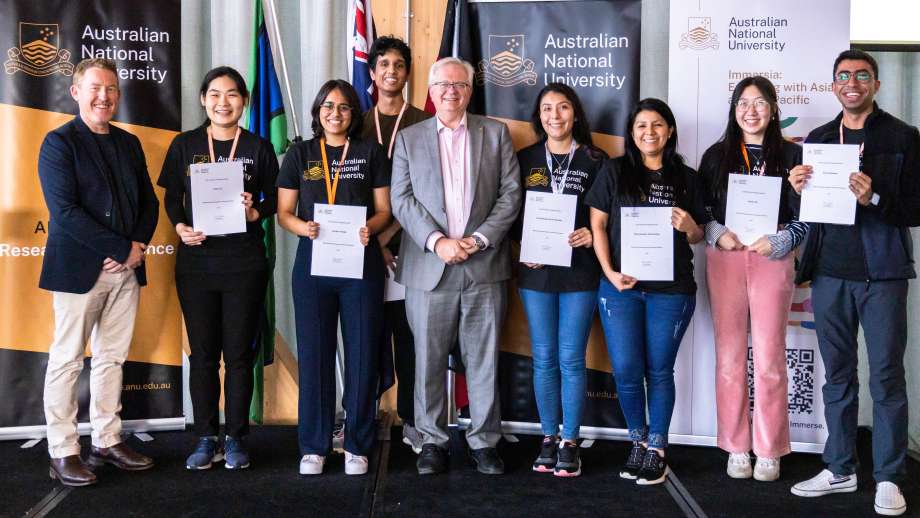RSB Directors Seminar - Crops on the Edge
Presented by ANU College of Science
Crop production and trade make a critical contribution to local and regional economies and food security. Recent spikes in the price and availability of major staple cereal grains, most notably wheat, have been caused by the coalescence of several factors including climatic, market, and political instability. In the Global South, this has threatened livelihoods whilst in countries like Australia these effects are largely felt by consumers in the rising cost of living. "Crops on the Edge" reflects the currently precarious nature of global wheat and cereal production in the face of multiple confounding challenges. The seminar will describe how current wheat breeding activities targeted to Global South livelihoods develop and deliver improved germplasm supporting farm-level productivity and underpinning food systems and trade. It will also describe opportunities to use biological and genetic approaches to address the rapid expansion of climate threats and a growing requirement to reduce agrochemical inputs and adopt more holistically sustainable agricultural practices. The seminar will highlight opportunities for new industry and stakeholder engagement, expansion of international activities and multi-disciplinarity to translate current scientific advances into tangible outputs for the agricultural sector around the world. As well as addressing the need to build resilience in major crop species this also has relevance to the wider landscape of crop improvement and food production.
Alison Bentley is an applied crop scientist with 15 years of research experience in genetics and plant breeding spanning fundamental understanding of plant processes through to development of field- and farm-level decision support tools. She has a BSc (Honors I, University Medal) and PhD in Agricultural Science from The University of Sydney, Australia and has primarily worked on wheat as a major staple food crop, with additional experience in barley, oat, sorghum, millet, and cowpea improvement. Throughout her career she has worked in a range of research environments in Australia, the UK and Mexico and has had close interactions with academia, the private sector, and the wider agricultural community. Alison is currently the Director of the Global Wheat Program at the International Maize and Wheat Improvement Center (CIMMYT) in Mexico and was previously Director of Genetics and Breeding at NIAB in Cambridge, UK. At NIAB she worked at the interface of academia and commercial plant breeding: translating fundamental plant science knowledge into pre-breeding products. At CIMMYT her work spans from collaborations with academia through to interactions with millers, bakers, and end-users to improve wheat primarily through genetic and breeding approaches to ensure positive livelihood impacts in Africa, Asia, and Latin America. Alison works increasingly across disciplines, connecting specifically with social, economic, policy and physical scientists to develop and implement a range of applied wheat improvement projects addressing major food security challenges. Within the wider community she created and leads the Women in Crop Science network (www.womenincropscience.org), developed to boost connections, increase visibility, and foster greater gender equity. She is currently an ANU CEAT Visiting Fellow working on multi-disciplinary opportunities to accelerate crop improvement. Alison is also strongly committed to science communication and was awarded the 2023 Borlaug CAST Communication Award recognizing the contribution to the advancement of science in the public policy arena.
Location
Room: Eucalyptus Seminar Room, Level 2
Speakers
- Alison Bentley, CEAT Visiting Fellow
Contact
- Craig Moritz



